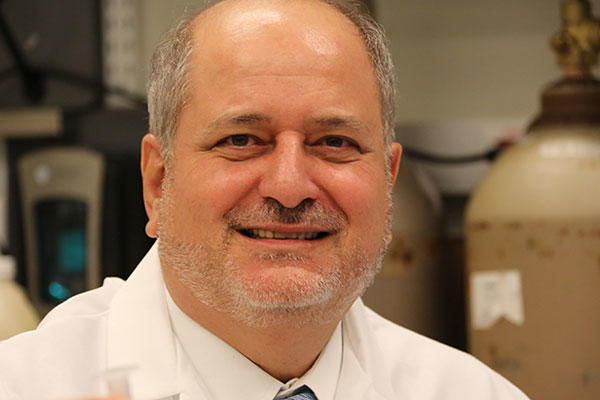The Department of Veterans Affairs has no interest or ownership rights to what's been called a "miracle drug" for curing hepatitis C, the department said on Thursday.
Furthermore, the department said Dr. Raymond Schinazi, a former VA researcher officials previously claimed invented the drug alternately known as Sofosbuvir or Sovaldi, did not do so.
"Our review of Dr. Schinazi's work indicates that VA has no financial right to this drug. Dr. Schinazi was not the inventor nor does he hold the patent on the drug. Therefore, VA has no ownership rights," VA spokeswoman Ndidi Mojay told Military.com on Thursday.
The drug has been used to cure tens of thousands of veterans of the disease. The treatment regimen last about 12 weeks and costs the VA an average of $40,000 per veteran, officials have told Congress.
House lawmakers' anger over treatment costs when the VA claimed to have a role in developing the drug led the department to review what, if any, ownership rights it might have. Under a technology transfer program, the VA can declare an interest on inventions it helps develop, with a percentage of commercial sales going into VA coffers for continued research.
In January, Rep. Jeff Miller, R-Florida, denounced Gilead Sciences of California, the company that has reaped billions in sales of the drug, noting it charges only about $900 for the same course of treatment for which the VA pays $40,000.
"Gilead's tone-deaf pricing strategy also fails to take into account the fact that without the Department of Veterans Affairs, the drug at the center of this debate would not even exist," Miller said in an op-ed posted on CNN, adding that the drug "was invented by a team led by a VA doctor, who sold the company" to Gilead.
The VA in the past has played up Schinazi's role as a VA researcher, and in 2015 presented him the Middleton Award, the top honor given by VA Biomedical Laboratory Research and Development, for his development of drugs to treat hepatitis infections as well as HIV.
The VA statement on Thursday that it had no part in the drug's development is consistent with what Schinazi told Military.com in early February. He said the work all was done at Pharmasset, his own research laboratory, which he operated while he also worked for the VA in Atlanta and Emory University.
In 2011 he sold Pharmasset -- and with it the drug -- to Gilead in a deal that netted him more than $400 million.
As for the drug itself, Schinazi told Military.com on Thursday that he never claimed to be its inventor.
Ownership will eventually be decided by a court, he said, because it has been the subject of a lawsuit for several years.
Miller invited several VA officials to testify to his committee on the drug in early February, but Schinazi was a no-show. He put in for retirement the same day that Miller's committee invited him, Under Secretary for Health Dr. David Shulkin and others to testify, and it took effect on Feb. 1, two days before the hearing.
Schinazi told Military.com he was never made aware of the hearing.
"I never received the letter or was asked by the VA to attend this meeting," he wrote last month in an email. "I decided to retire from the VA well before all this. My labs are now based at Emory University and I am now 65 years old."
-- Bryant Jordan can be reached at bryant.jordan@military.com. Follow him on Twitter at @bryantjordan.




























